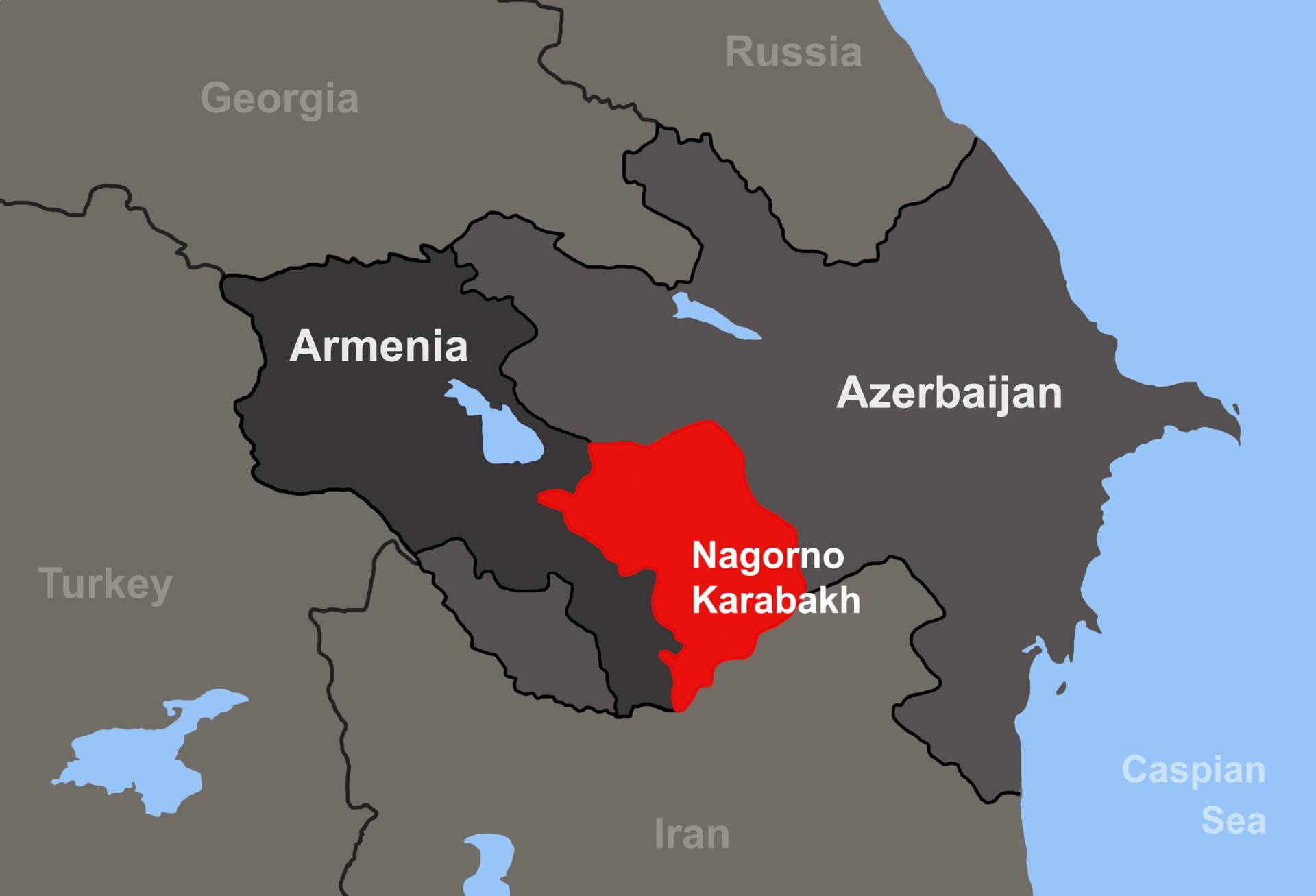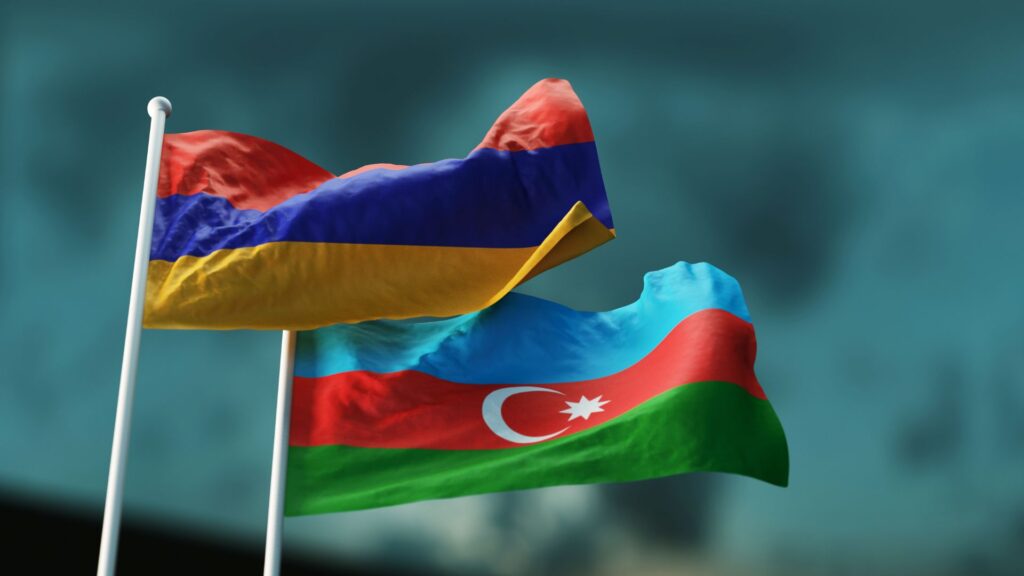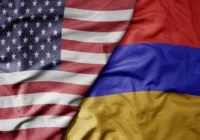We are currently living in the most multipolar and unstable period the world has seen since August 1914. It took two world wars to undo the consequences of the last period. The rules-based international order as we know it today is being challenged, and for the first time in the 80 years since the end of World War II, wars are being fought that take no notice and don’t bother with the pretense of that order. The events that began unfolding in the countries of Azerbaijan and Armenia in September 2020 were the first unvarnished challenge to the legitimacy of that world order, and the Western world has not answered that challenge.
While the history of the conflict goes back for centuries, its relevance for the West begins in 1994 following the collapse of the Soviet Union what is now known as the first Karabakh war ended in April 1994 with a negotiated ceasefire between the Azeris and the indigenous ethnic Armenians of Nagorno-Karabakh. The ceasefire was followed by commitment from all parties to a mediated settlement under the Organization for Security and Cooperation in Europe (OSCE) Mink Group. The terms of that ceasefire were to freeze the line of contact that would leave just under 20% of what was Soviet Azerbaijan’s territory under control of the local Armenians who were supported by the Republic of Armenia, pending a negotiated settlement on self-governance status, resettlement of refugees, and any exchange of territories.
From frozen conflict to ethnic cleansing
Within the OSCE framework, Azerbaijan and Armenia along with three mediators composed of the United States, France, and Russia, proceeded to conduct many rounds of negotiations over the next 27 years. The lack of substantive progress led the conflict to take on the ominous status of a “frozen conflict”, with occasional clashes along the line of contact. In September 2020 the situation changed. On September 27,2020 Azerbaijan launched a war to retake Karabakh in what became known as the 44-day war or the second Karabakh war.
Russia negotiated a ceasefire in November 2020, which was followed by nearly three years of clashes and blockades and an ineffective Russian peace-keeping mission. Azerbaijan justified the war as a resolution to the frozen conflict. It completed its conquest to take over Karabakh with a week-long campaign beginning on September 19 this year. At the conclusion of this crusade, Azerbaijan had established total control of the region of Karabakh and the expulsion of the entire Armenian population of 120,000 people.
The immediate consequence of the failure to respond to Azerbaijan’s rejection of its international commitments with the support of Turkey, a NATO member, and Israel, a NATO partner, have been earth shattering. First, it is the complete eviction of all 120,000 remaining Armenians in the region that has been populated by ethnic Armenians for more than two millennia. Azerbaijan committed an ethnic cleansing within essentially one week. The speed of the events was such that the Western powers did not have time to issue reactions through their bureaucratic processes before the ethnic cleansing was complete.
Moreover, the very public support of a NATO state and NATO partner made any Western intervention a minefield. With Turkish troops directly involved and Israeli weapons on the front line, both of those states had the power to block most any coordinated effort from Western powers to react. For the first time, Western-aligned states were explicitly on the side of undermining an international conflict resolution process.
A terrible precedent for the future
The consequences of this profound failure to protect the rules-based international order will reverberate in generations to come. The September 2020 Azerbaijani military offensive against ethnic Armenians was executed summarily. Azerbaijan made no effort to seek international legitimation or had any concern that an international reaction would follow. The lack of Western response emboldened Russia to leverage the same pseudo-legalistic language used by Azerbaijan to legitimize its invasion of Ukraine in February 2022.
Russia did not drum up support for Armenians through the UN. It did not activate Russia’s own alliance structure under the Collective Security Treaty Organization (CSTO). This alliance of six post-Soviet states — Armenia, Belarus, Kazakhstan, Kyrgyzstan, Russia, and Tajikistan — formed in 2002 proved to be useless for Armenians. Russia did not even make a serious propaganda effort focused on the international community to identify a clear casus belli. In essence, Russia did not bother with a single step to legitimize its invasion. Even in the Soviet invasion of Afghanistan was done under the auspices of an intervention in a civil war, like the justification used by the United States for its engagement in Vietnam.
Every setback to the legitimacy of the institutions the West relies upon to provide peace and order increases danger. The biggest danger is that state actors start bypassing the international system to pursue their goals. Rules-based orders give us predictability. They create a sandbox, which limits the realm of the possible. If things cannot be confined within that sandbox, then we are increasing volatility, uncertainty, complexity and ambiguity (VUCA). This VUCA world is dangerous in the age of nuclear weapons.
The rise of VUCA at a time globalized economies upon which billions depend for food, water, fuel and basic goods, such unpredictability is frightening. The ethnic cleansing of Armenians from Nagorno-Karabakh is a humanitarian disaster. The fact that it has gone completely unopposed is a terrible precedent. Azerbaijan’s decision to wage war to resolve the frozen conflict sets an example for others that it will be nearly impossible to walk back without a unified front from the West. This precedent will continually be used to embolden the use of violence to resolve conflict, without regard to international norms and will make the entire world worse off in the process.
[The views expressed in this article are the authors and do not represent the views of the US Government or any company.]
The views expressed in this article are the author’s own and do not necessarily reflect Fair Observer’s editorial policy.
Support Fair Observer
We rely on your support for our independence, diversity and quality.
For more than 10 years, Fair Observer has been free, fair and independent. No billionaire owns us, no advertisers control us. We are a reader-supported nonprofit. Unlike many other publications, we keep our content free for readers regardless of where they live or whether they can afford to pay. We have no paywalls and no ads.
In the post-truth era of fake news, echo chambers and filter bubbles, we publish a plurality of perspectives from around the world. Anyone can publish with us, but everyone goes through a rigorous editorial process. So, you get fact-checked, well-reasoned content instead of noise.
We publish 2,500+ voices from 90+ countries. We also conduct education and training programs
on subjects ranging from digital media and journalism to writing and critical thinking. This
doesn’t come cheap. Servers, editors, trainers and web developers cost
money.
Please consider supporting us on a regular basis as a recurring donor or a
sustaining member.
Will you support FO’s journalism?
We rely on your support for our independence, diversity and quality.








Comment